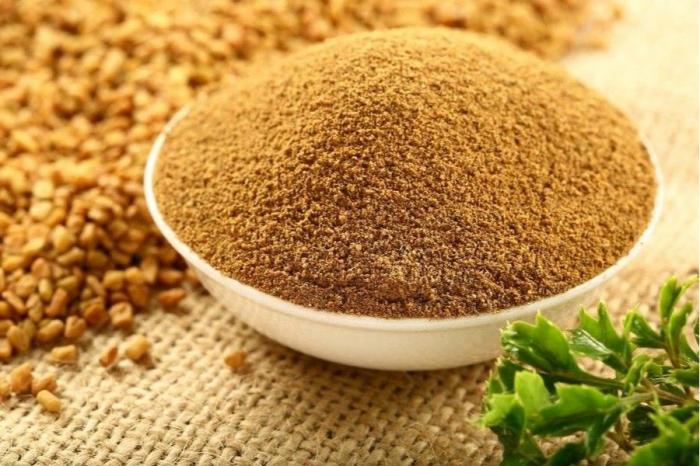Methi powder, made from dried fenugreek seeds, has gained popularity as a natural remedy among breastfeeding mothers. Many women believe that it can help boost breast milk production. In this article, we will explore the benefits of methi powder, how to use it, and its potential effects on breastfeeding.
Understanding Methi Powder
Methi, also known as fenugreek, is an herb that has been used in traditional medicine for centuries. The seeds of this plant are rich in nutrients, including vitamins A, C, and K, as well as minerals like iron, calcium, and magnesium. These nutrients play essential roles in supporting overall health, especially for new mothers.
Methi seeds are often ground into a fine powder, which can be easily incorporated into various dishes. This powder has a slightly bitter taste and a distinct aroma. In Indian cuisine, it is commonly used to flavor curries and other dishes.
Benefits of Methi Powder for Breastfeeding Mothers
1. Boosting Milk Production
One of the main reasons mothers use methi powder is to increase milk supply. Some studies suggest that fenugreek may have galactagogue properties, meaning it can promote lactation. The seeds contain phytoestrogens, which are plant-based compounds that mimic estrogen. This can potentially stimulate breast tissue and enhance milk production.
Mothers who consume methi powder often report an increase in breast milk supply within a few days. However, it is important to note that individual responses may vary.
2. Improving Digestion
Methi powder is known for its digestive benefits. It can help alleviate common issues like bloating, gas, and constipation, which some new mothers experience after childbirth.
Healthy digestion is crucial for breastfeeding mothers, as it can affect overall health and energy levels. When the body is well-nourished and functioning optimally, it can produce better-quality milk for the baby.
3. Providing Essential Nutrients
Methi powder is packed with nutrients that are beneficial for new mothers. The vitamins and minerals present in methi can support recovery after childbirth and promote overall well-being.
For breastfeeding mothers, these nutrients are also important for the quality of breast milk. Consuming a diet rich in vitamins and minerals can help ensure that the baby receives adequate nourishment through breast milk.
4. Balancing Hormones
After childbirth, many women experience hormonal fluctuations. Methi powder may help balance hormones, thanks to its phytoestrogen content. This can assist in regulating mood and reducing symptoms of postpartum depression.
Maintaining a stable hormonal balance is vital for the well-being of both mother and baby.
How to Use Methi Powder
Incorporating methi powder into your diet is easy. Here are some simple ways to use it:
1. Methi Water
One of the easiest ways to consume methi powder is by making methi water.
How to Prepare:
Soak one teaspoon of methi powder in a glass of water overnight.
In the morning, strain the mixture and drink the water on an empty stomach.
This can be a refreshing start to your day while providing the benefits of methi.
2. Methi Tea
Methi tea is another popular way to enjoy the benefits of methi powder.
How to Prepare:
Boil a cup of water and add one teaspoon of methi powder.
Let it simmer for a few minutes.
Strain and add honey or lemon for flavor if desired.
Drinking methi tea can be a soothing way to increase your intake of this nutritious herb.
3. Incorporating into Meals
Methi powder can be added to various dishes, making it easy to incorporate into your daily meals.
Examples:
Add it to curries, soups, or stews for added flavor and nutrition.
Mix it into your smoothie or yogurt for a healthy snack.
Use it in baking, such as in bread or muffins, for a unique flavor.
Experiment with different recipes to find what you enjoy most.
4. Methi Seed Sprouts
Sprouting methi seeds can also enhance their nutritional profile.
How to Prepare:
Soak methi seeds in water for 6-8 hours.
Drain the water and place the seeds in a jar or container.
Rinse and drain the seeds twice a day for 2-3 days until they sprout.
Sprouted methi seeds can be added to salads, sandwiches, or eaten on their own as a healthy snack.
Possible Side Effects and Precautions
While methi powder is generally safe for most people, there are some potential side effects to be aware of.
1. Allergic Reactions
Some individuals may be allergic to fenugreek. If you experience any allergic reactions, such as itching, rash, or swelling, discontinue use and consult a healthcare professional.
2. Blood Sugar Levels
Methi can lower blood sugar levels. If you have diabetes or are taking medications that affect blood sugar, consult your doctor before using methi powder.
3. Gastrointestinal Issues
Consuming large amounts of methi powder may cause digestive discomfort, including gas and bloating. It’s best to start with small amounts and gradually increase your intake as tolerated.
4. Consult a Healthcare Provider
Always consult your healthcare provider before adding new supplements or herbs to your diet, especially while breastfeeding. They can provide personalized advice based on your health needs and circumstances.
See also: Can Breastfeeding Mothers Eat Chocolate
Conclusion
Methi powder can be a valuable addition to the diet of breastfeeding mothers. Its potential benefits, such as boosting milk production, improving digestion, and providing essential nutrients, make it a popular choice for many women.
Incorporating methi powder into your daily routine can be simple and delicious. Whether in water, tea, or meals, there are numerous ways to enjoy this nutritious herb.
However, it is essential to approach any new dietary addition with caution. Pay attention to your body’s responses and consult your healthcare provider as needed.
By maintaining a balanced diet and staying informed, mothers can support their breastfeeding journey and ensure the best for themselves and their babies.
In summary, methi powder offers various benefits for breastfeeding mothers, making it a worthwhile consideration for those looking to enhance their lactation experience.
Related topics:


